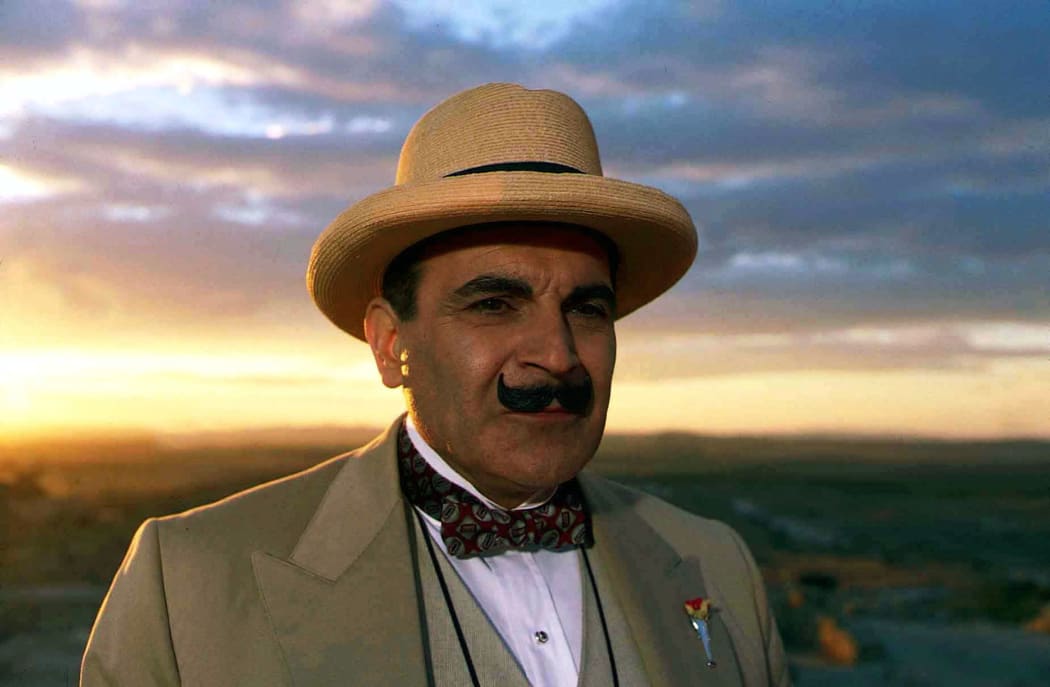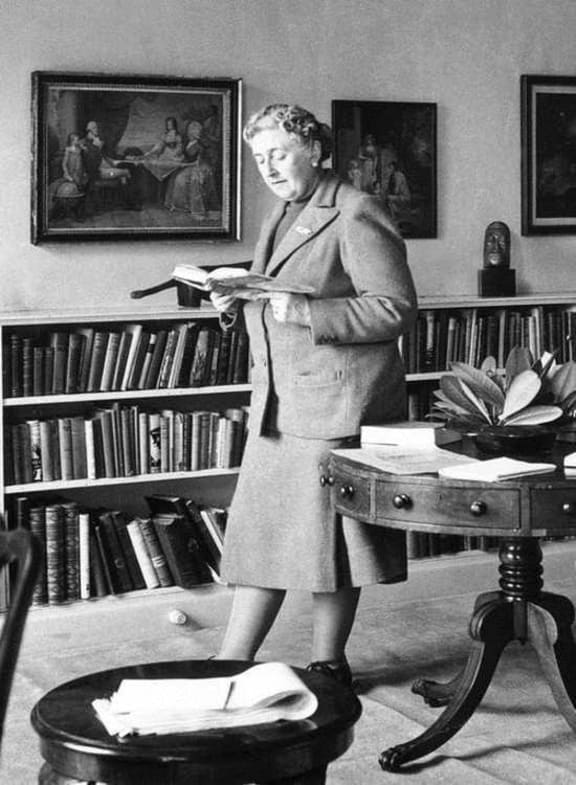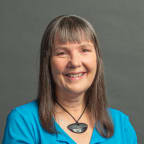It's 100 years since crime writer Agatha Christie introduced the world to the meticulous, moustachioed Belgian detective Hercule Poirot.
The dapper detective stepped out in Christie's first novel, The Mysterious Affair at Styles. Actually, it was first serialised in The Times from February to June 1920, making her the first author to have a debut novel serialised in the newspaper. It was several months before readers had the chance to buy it as a book.

Photo: Christophel © ITV Plc / Granada International
While his creator famously described him as a "detestable, bombastic, tiresome, ego-centric little creep", Poirot and his "little grey cells" appeared in more than 30 of her novels, around 50 short stories and two plays. She gave him a dignified and moving send off in Curtain: Poirot's Last Case, the last novel published before Christie's own death in 1976.
New Zealand libraries report that crime and mystery novels have been in huge demand online during our enforced time at home. We used to devour them to fill in time on long haul flights and train trips overseas.
More than 2 billion Christie books have been sold and continue to fly off the virtual and literal shelves.
Christie is the most well-known and commonly read crime writer in the UK today, according to recent research commissioned by HarperCollins to mark the centenary of Christie being in print. It didn't include New Zealand readers, but I think we can assume it's true here too, while our own Dame Ngaio Marsh also has a large and faithful following. New Zealand also has a flourishing crime writing community, with growing numbers of contemporary writers qualifying each year for the Ngaio Marsh Awards for crime writing.
Back to Poirot.
UK crime writer Sophie Hannah has brought Poirot back to life in several books including Closed Casket and The Monogram Murders, with a new one due out later this year.
Before we hear from Sophie, I did a shout out on the New Zealand Crime & Mystery Writing Facebook page asking those who write crime, about their favourite Agatha Christie novel, and why.
Craig Sisterson is the founder of the Ngaio Marsh Awards and author of Southern Cross Crime.
"I adored Agatha Christie when I was a kid growing up in Nelson. I borrowed all the Hercule Poirot tales from the library as an adolescent, and a few of the others. They were all pretty fascinating and kept me hooked as a young reader who really loved mysteries.
"Looking back, there were a handful that stuck with me, for a variety of reasons. I really liked the conceit of The ABC Murders, the idea of a series of killings not being what they seemed. It's interesting as I got older to recognise some of Agatha Christie's formats appearing in other TV shows and films - the underlying conceit of that book has turned up in things like Beverley Hills Cop II, for instance.
"Despite the settings and investigators being very different. I also really loved The Labours of Hercules, being an interconnected series of short stories rather than a single novel, and how Christie brought the classic Greek tales into her times. The third book that really stuck with me was Final Curtain, the swansong for Poirot. Even as a kid I thought it was really interesting the choices Christie made to say goodbye to such a beloved character."

Agatha Christie Photo: / cc
Renée, author and playwright says:
"I read Agatha Christie when I was quite young, probably 10 or 11. I read all my mother's library books and she mine. Sorry, I can't remember which one I read first. The class stuff, the colonels, the upper classes and their arrogance towards the 'lower classes' and foreigners only jumped out at me a couple of years later.
"She was very popular though, and her ability with puzzles and locked rooms was phenomenal. No one cared that her characters were stereotypes. All the other Queens of Crime, eg Ngaio Marsh, Marjory Ellingham and Dorothy Sayers (my favourite) sold well too. And whatever we think of them now, they outsold male writers by hundreds at a time when publishers published mainly male writers. Sure Agatha's were particularly formulaic but she satisfied millions of readers, especially during the war years, and whatever one thinks of her now, those facts remain. Even in 2020 people still borrow hers from libraries. I only have one of hers on my iPad library (Murder on the Orient Express), three of Ngaio Marsh's and 5 or 6 of Dorothy Sayers for old times' sake."
Nathan Blackwell, author of The Sound of Her Voice says: "I certainly haven't read a tonne of Agatha Christie but of the ones I did, Death on the Nile I remember well as Egypt has always fascinated me (even if it doesn't play a massive role in the plot!) ... and I got to sail down it myself back in '08 which was pretty cool."
"Witness for the Prosecution with its twist upon twist and great plot," is the pick of Chris Stuart, author and literary judge.
What's yours - and why?
Back to Sophie Hannah, who's studied Hercule Poirot in depth to ensure that she doesn't put a foot wrong in her novels. Because she knows the detective's avid fans would detect any error.
First I posed the same question that I did to other crime writers - her favourite Christie novel.
"The Body in the Library - a masterpiece, and I was hooked for life," she says.
All these years on, what differentiates Christie from the thousands of other crime writers represented in our bookshelves, libraries and Ebook selections?
"I honestly believe there's an element of magic to Agatha's genius that defies analysis", Hannah says.
"But also she perfectly blends, in her work, pairs of opposites that most writers cannot successfully combine. Agatha's books are able to be, simultaneously, simple enough that 12-year-olds can love them, yet complex enough to pose an impossible challenge to a bright adult mind. They're light and jolly and fun to read, but also infused with a powerful awareness of evil. Poirot and Miss Marple are simultaneously magic superheroes and absolutely real-feeling human beings."
After reading all the Poirot novels at least once before keeping him alive in her books, what has she learned about the craft of crime writing?
"That telling a story in an intriguing, gripping, pacey way and relishing the joy of storytelling while you're doing it, in a way that becomes tangible for the reader, is the most important thing of all. Enid Blyton, Agatha Christie, Daphne Du Maurier...all the best storytellers have this aspect to their writing, and readers love it more than anything else."
Then we come to the reasons behind the enduring irresistibility of crime novels for generations of readers.
"Because of the 'solving the puzzle' element. For most of us, that is one of the most powerful preoccupations in our day-to-day life," Sophie Hannah says.
"Will we get the job we want? Does our postman secretly desire us? Will our teenage children ever start doing some work for their exams? We're spurred on by not knowing and desperately wishing we did. Crime fiction is the only genre that puts puzzle-solving - making sense of what the hell's going on - at the centre of everything. It's closest to our core motivation that drives us through our lives - the need to know."
Fascination with crime isn't limited to books, it's a mainstay of TV and streaming services. Scandi noir is particularly popular, taking over from the CSI TV series era that was largely about presenting viewers mind blowing forensic special effects.
I wondered if a great crime novel is more about motivation than the murder itself?
"Different crime writers differ on this issue. For me the motive, the 'why', is as crucial as the 'whodunnit' factor. There's nothing as fascinating as the particular strange mindset of any unusual individual," she says.
"I like all my murderers to have what I call 'non-transferable' motives - motives that only that particular person in that very specific situation would have."
It's not just Hercule Poirot immortalised on screen. It's hard to think of the character without David Suchet coming to mind. Several actresses played Christie's Jane Marple for the BBC and other TV productions, each bringing a different perspective to the character. In a recent poll Joan Hickson was voted as the definitive Miss Marple, followed closely by Margaret Rutherford, Geraldine McEwan, Julia McKenzie and Angela Lansbury.
Other Christie novels remain popular and are regularly adapted on the large and small screens. Hannah explains why they work so well off the page.
"Because their plot structures are so elegant and clear and strong. Agatha's stories have the best 'bone structure' in all of fiction."
So what can she tell us ahead of her latest Poirot novel due out in August, without giving away too many clues or any red herrings of course?
"In The Killings at Kingfisher Hill, Hercule Poirot is travelling by luxury passenger coach from London to the exclusive Kingfisher Hill estate. Richard Devonport has summoned him to prove that his fiancée, Helen, is innocent of the murder of his brother, Frank. There is one strange condition attached to this request: Poirot must conceal his true reason for being there from the rest of the Devonport family.
"On the coach, a distressed woman leaps up, demanding to disembark. She insists that if she stays in her seat, she will be murdered. A seat-swap is arranged, and the rest of the journey passes without incident. But Poirot has a bad feeling about it, and his fears are later confirmed when a body is discovered in the Devonports' home with a note that refers to 'the seat that you shouldn't have sat in'.
"Could this new murder and the peculiar incident on the coach be clues to solving mystery of who killed Frank Devonport? And can Poirot find the real murderer in time to save an innocent woman from the gallows?"


